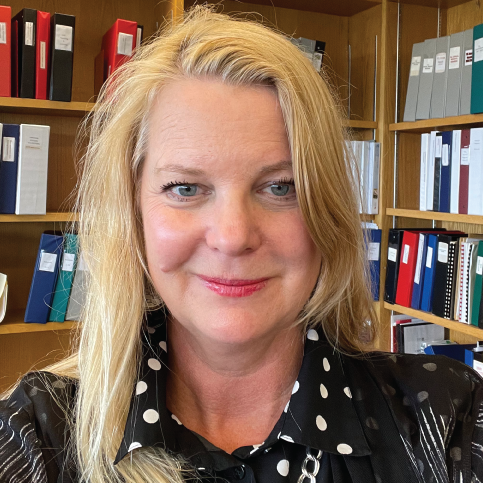
The decision to devote this issue of “Innovatus” to Open Educational Resources (OER) is a deliberate one. Across Canada, there is a national conversation happening about how academic institutions use OER, support OER adoption and creation in the classroom, and how OER facilitate innovative pedagogy.

As the articles in this issue of “Innovatus” show, instructors at York University have already made great strides in adopting and creating OER.
There is a real opportunity for York University to be a leader in open education. In fact, I will be hosting a pivotal National Open Education Strategy Summit, Nov. 9 and 10, at York University. This event will gather major stakeholders across the country, including representatives from key national higher education organizations such as Universities Canada, Colleges and Institutes Canada (CICan), the Canadian Association of Research Libraries (CARL), Vice-Presidents Teaching & Learning Table Canada (VPTL Canada), Campus Books Canada, Open/Technology in Education, Society, and Scholarship Association (OTESSA), the Canadian Association of University Teachers (CAUT), Canadian Federation of Students (CFS), Student Union Etudiante, the Canadian Alliance of Student Associations, eCampusOntario and BCCampus. As well, faculty, librarians, educational developers and administrators from across the country will be attending to discuss how a federal strategy can be developed to support the adoption, adaptation and creation of OER on a national scale.
Open Education is a pedagogical philosophy that removes access barriers to education. OER are openly licensed, freely available educational materials that can be used, accessed, adapted and redistributed with no or limited restrictions. OER come in a variety of formats, including textbooks, courses, multimedia, streaming video, data and supplementary materials. As the COVID-19 pandemic required courses to pivot to an online format, instructors demanded more online resources, a situation that put OER into the spotlight.
Here at York University, there is a strong interest in open education. We actively support the adoption and creation of OER. I currently co-chair York’s Open Education Steering Committee (OESC) with Will Gage, associate vice president teaching & learning. The OESC focuses on coordinating and promoting the creation, mobilization, and discovery of OER produced by the broader York community, as well as investigating avenues towards adopting open course materials to enhance the student experience at York University.
In fact, open education and OER dovetail perfectly with York’s University Academic Plan (UAP). The UAP’s priority, From Access to Success, calls for the University to support students from all backgrounds in their educational journeys. OER are one of the tools that can help make the university environment more accessible to students by providing access to course learning materials from the first day of classes, for free.
Incorporating OER into the curriculum also helps the University advance the UAP priority, 21st century learning, as OER can help make York a more attractive learning environment for students since these resources are not only free, but instructors can also tailor them to the specific learning needs of York students. Finally, open educational practices also help York instructors, staff and students contribute to the United Nations Sustainable Development Goals (UN SDG). Using OER in the classroom helps instructors contribute to UN SDG 4: Quality Education, as it promotes no cost open access to teaching and learning resources. OER are embraced by UNESCO they encourage inclusive and equitable quality education and are a means to facilitate international cooperation. The York community has the opportunity to directly contribute to UNESCO's OER in action program with linkages to other UN SDGs.
Ultimately, open educational practices herald a new way of thinking about teaching and learning, one that embraces a spirit of sharing and exchange where authors use open licenses that empower other instructors to share, reuse and even remix their learning resources to create custom learning experiences for students.
As you read through the stories in this issue, join the York University Libraries, the OESC and instructors engaged in this area in imagining a world where educators share and innovate through building upon each other’s teaching and learning resources to create a more equitable, inclusive learning environment. Then, take the next step and get involved. York has a robust group of people supporting the creation, adoption and adaptation of OER, and we encourage all York instructors to explore how OER can enrich the student experience in your classroom and beyond.
Joy Kirchner
Dean of Libraries
